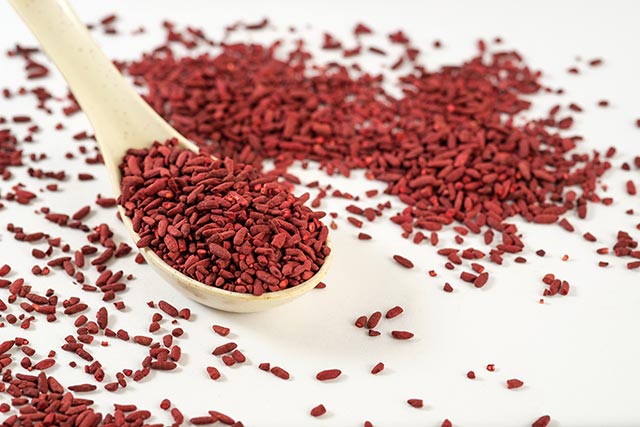Talking therapy can improve symptoms of IBS “better than drugs,” study says
11/12/2019 / By Melissa Smith

Many people with irritable bowel syndrome (IBS) often rely on doctor-prescribed drugs like laxatives, which often cause other harmful side effects. Among other natural and safe ways to manage IBS, researchers also suggest talking therapy.
Researchers at the University of Southampton in the U.K., together with colleagues at King’s College London, found that talking therapy can improve IBS symptoms better than drugs. They reached this conclusion after looking at more than 500 participants with IBS who received talking therapy over the phone or online, or the usual drug treatment.
For their study, the researchers divided 558 participants into three groups. The first group received standard treatment with an information sheet on diet and lifestyle; the second group received additional eight hours of counseling on the phone; and the third group received standard treatment, plus eight sessions of cognitive behavioral therapy (CBT) online, and two-and-a-half hours of telephone support. CBT included advice on eating healthily, avoiding negative thoughts, and stress and sleep management.
The researchers saw that those who received counseling over the phone and online experienced significant improvements in their symptoms. Those who received CBT over the phone experienced the greatest improvements in symptoms. Two-thirds of those who received talking therapy online also saw improvements, while less than half benefited from taking the usual drug treatment.
Talking therapy aims to improve the quality of lives of people with IBS by targeting unhelpful beliefs and coping behaviors. Face-to-face talking therapy is often recommended as a treatment for IBS, but doctors rarely have the option to offer it, and waiting lists for face-to-face therapy are usually long.
Sponsored: NEW Biostructured Silver First Aid Gel created by the Health Ranger combines three types of silver (ionic silver, colloidal silver, biostructured silver) with seven potent botanicals (rosemary, oregano, cinnamon and more) to create a breakthrough first aid silver gel. Over 50 ppm silver, verified via ICP-MS lab analysis. Made from 100% Texas rain water and 70% solar power. Zero chemical preservatives, fragrances or emulsifiers. See full details here.
“It is constrained resources within the NHS [National Health Service] that mean this hasn’t been a priority for funding,” explained Dr. Hazel Everitt, the lead author of the study.
The team published their findings in the journal Gut. Currently, the team is working on demonstrating that the services are cost-effective and can potentially help the NHS and the economy save more money if these remotely delivered services are rolled out.
IBS is a chronic problem with no cure and affects women more than men. Almost one in five people suffer from IBS, which causes serious discomfort, diarrhea, constipation, abdominal pain, and bloating. They also have to deal with the embarrassment of having to rush to the toilet. Stress and anxiety are thought to make it worse by causing changes to the gut which may play a role in the occurrence of flare-ups. (Related: Treat and minimize IBS symptoms with these natural remedies.)
Natural remedies for IBS
A review published in the British Journal of Pharmacology offers some hope for individuals who don’t necessarily experience bad side effects from standard IBS treatments, but also don’t benefit at all from them. The following alternative therapies have been shown to effectively and safely improve IBS symptoms:
- Probiotics – Probiotics are live bacteria found in supplements or fermented foods such as yogurt and kefir. In the review, the authors cited several randomized clinical trials that suggested taking probiotics to ease abdominal pain and other IBS symptoms.
- Prebiotics – Prebiotics are nondigestible carbohydrates that serve as food for probiotics. While only a few studies have been done on prebiotics, there is evidence suggesting that they may improve gut health. You can get prebiotics from foods like bananas, garlic, onions, and raw asparagus.
- Fiber – Consuming more fiber also appears to improve some cases of IBS. The review noted that various types of fiber, such as wheat bran, psyllium, and polycarbophil calcium, showed promising results in earlier studies. However, fiber is only effective for those with constipation-predominant IBS. Those who experience a lot of bloating, diarrhea, or gassiness may skip fiber as it can worsen these symptoms.
- Peppermint oil – Peppermint oil showed the most promising results out of all the herbal remedies examined in the review. It is particularly effective for those with a lot of IBS-related pain as it is considered a natural anti-spasmodic.
Learn more about the benefits of talking therapy and other natural remedies for IBS at Remedies.news.
Sources include:
Tagged Under: alternative medicine, cognitive behavioral therapy, digestion, digestive health, disease treatments, fiber, IBS, irritable bowel syndrome, natural cures, natural healing, natural medicine, pain relief, remedies, talking therapy



















